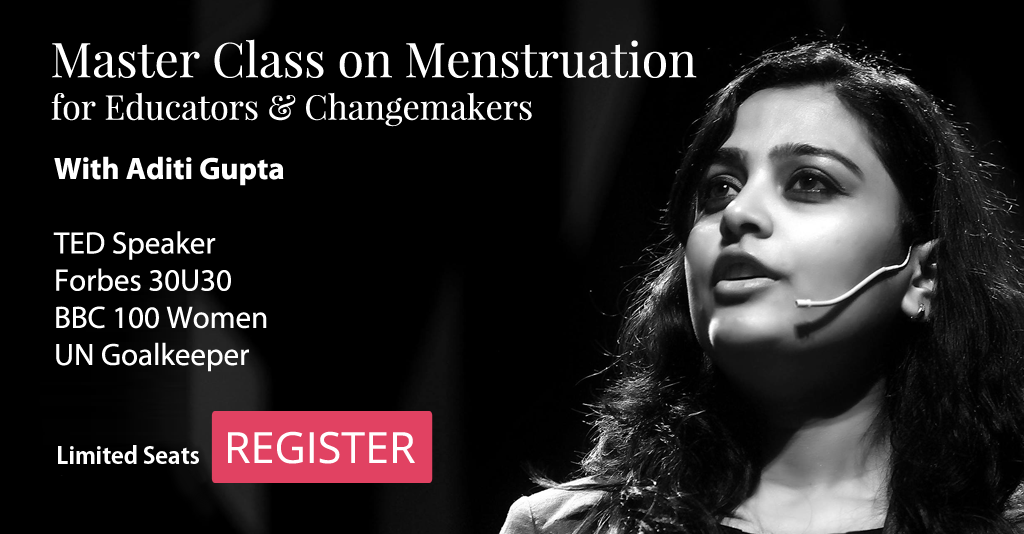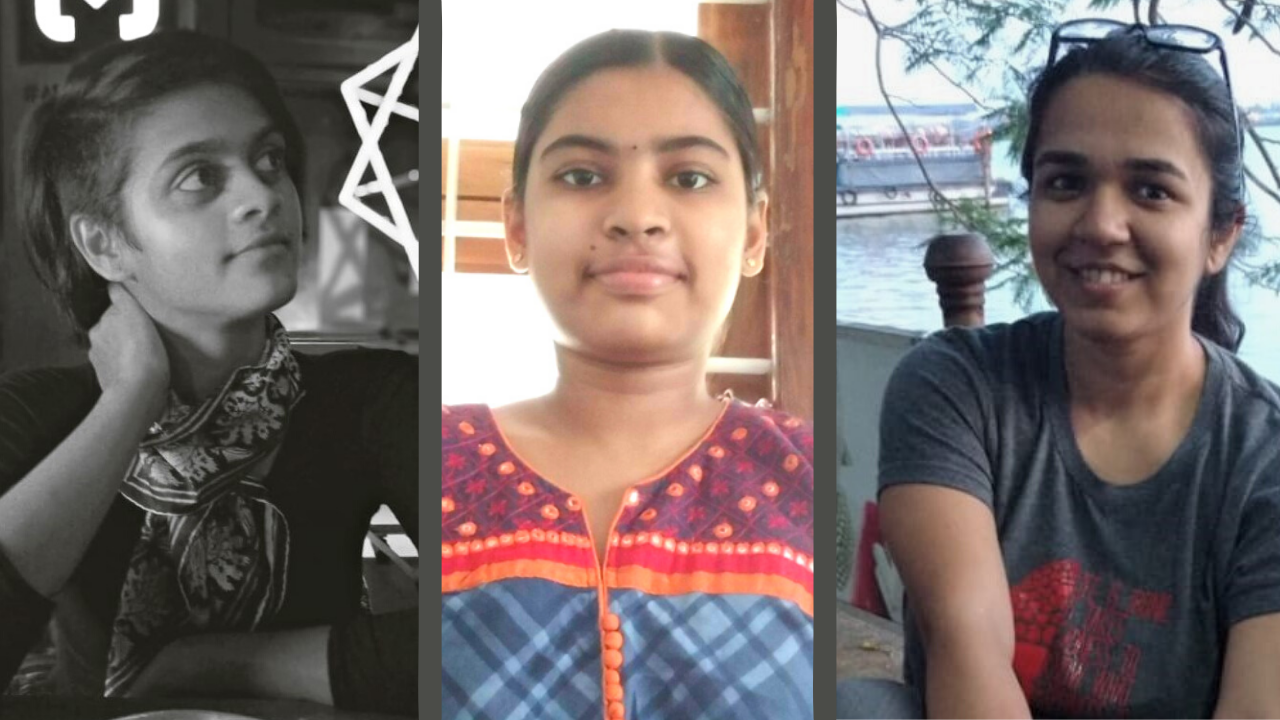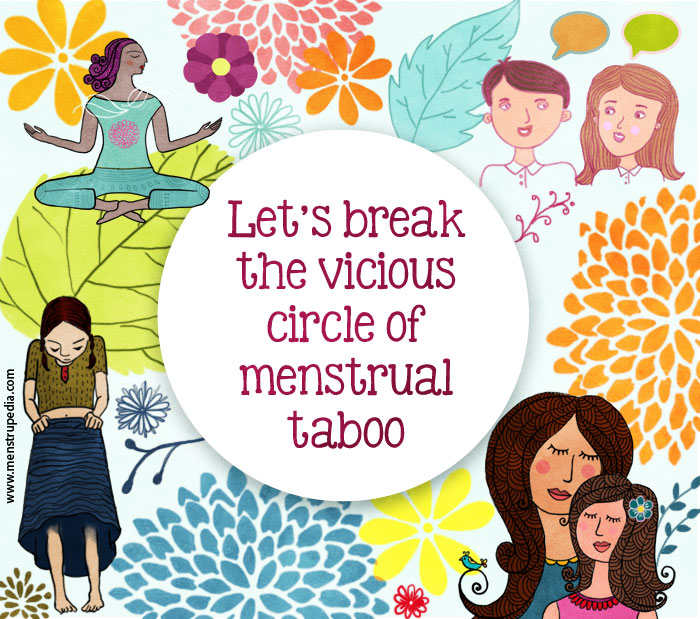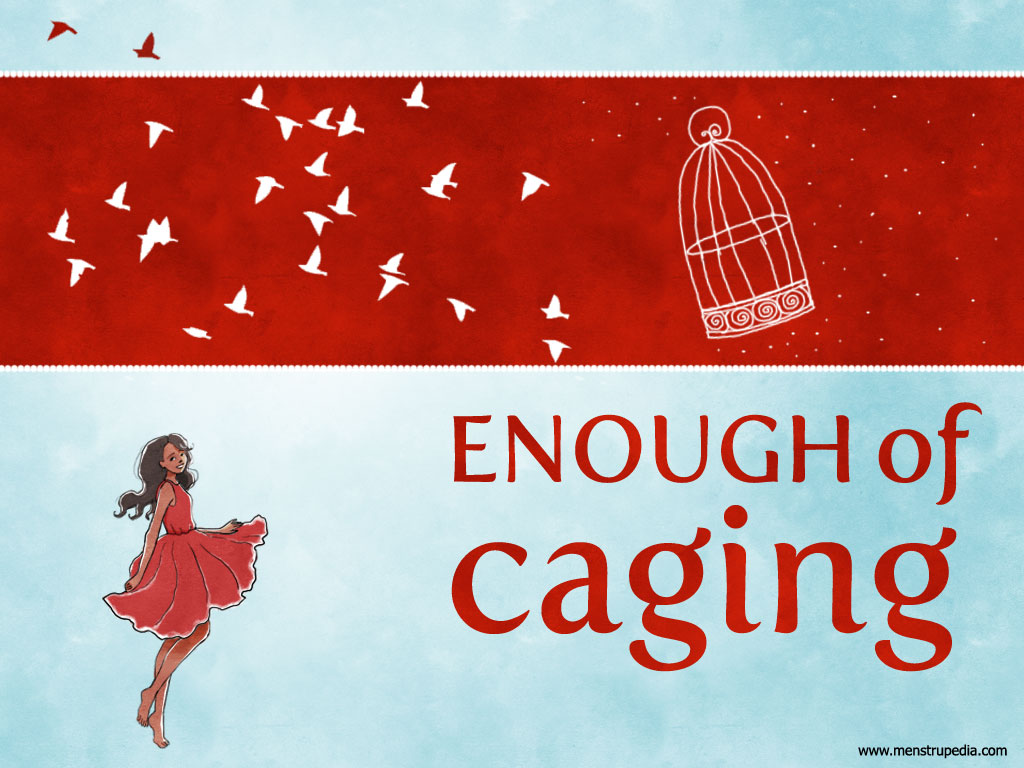This article is based on Aditi’s IGTV live discussion with Sakshi Bhatia Chopra from Roundglass Foundation. It discusses the steps to establish a menstrual hygiene project in rural communities and spread menstrual health awareness in a sustainable way by effectively pitching and running CSR initiatives.
You come from a sector with so many opportunities for working with girls. Why did you choose this particular project that empowers girls to learn and talk about periods?
I used to suffer from extreme pain during my periods. It was much later after an ultrasound check that I realized that I had endometriosis. It was at that moment that I realized that a lot of people suffer from this and that it was very important to talk about it.
Educating girls about these issues is one of the most important aspects of empowering women. By doing so, we are effectively making future generations aware of these issues.
There’s not much research by the government in this area and there’s also no complete cure yet for endometriosis. However, while I was reading more about it and working on this project as well, I realized that there are a lot of steps we can take apart from having to settle for the advice: “have a baby and it will be okay,” which doctors commonly give.

Can you take us through the journey of how this project started? What were the steps you took and how did you prepare?
The first challenge I faced was the lack of awareness around this issue. It is very difficult to strike a conversation with a community’s people especially when they are not comfortable enough around you to build trust. Once they feel safe and connected, they open up, and that becomes the foundation for the whole exercise to take place. Then of course there are operational challenges with training, motivation, funds, and volunteers.
Extensive research has also been crucial to our work. We had to research the demographics of the places involved, where exactly we wanted to make an impact and so on. The government is very supportive in this area and has a lot of schemes and policies for this purpose. However, there is a lack of implementers; these roles are typically played by NGOs and foundations.
We used friendly educational resources from Menstrupedia. I found them culturally sensitive and safer to use in our program.
When you are pitching a CSR project, what values do people expect from you as a changemaker or with a project like this? How do you measure the impact of the project, in order to make sure that it is effective?
I think there are a few points that everyone should focus on for every project.
- The first one is research – for the best content, the best service and also to make it more sustainable.
- Sustainability is also key. I started alone, but the team and the foundation also realized that one person alone cannot cover all the villages involved in the project. We have a large team now, whose coordinators are also working in the education sector. A lot of people in the foundation are working on it now and that’s how we have scaled it up.
- Data is also very important. If you have all the initial data and the stats and know the mindset of the community that you are working with, it really helps. It is also important to focus on community connections when you are networking for funds.
- Be aware of your own government schemes when you are pitching a project.
- Have a good financial model so that you know exactly what you are asking for when you are pitching the project.
- Impact measurement is also very important. This is an area with which all the NGOs seem to struggle.
I have been told that when it comes to gender, that real impact is measured after a generation, but as you said, one has to provide some kind of data through research. So what is the kind of data you provide and what are the kind of parameters that you offer that help you show that your project is viable and impactful?
- Pre-assessment is very important since only then can we compare it with post –assessment impact. We worked with principals and teachers and also trained mothers on how to talk to their daughters about periods. We asked a few girls if they were told about periods before, and they gave us answers that reflected many period myths and taboos. So it was great to keep track of the initial level of knowledge of the girls before the workshop and measure changes after the workshop.
- We can also take the assistance of district administrations for data. They have a lot of data about cases on menstrual hygiene, usage of sanitary pads from the chemist’s shops, etc.
- It also helps to constantly stay in touch with principals and school authorities. We are planning for the issuance of comic books.
- We distribute copies of the Menstrupedia comic and keep them in the library. We keep in touch with school authorities, making Whatsapp groups, and are constantly being updated on the status of things. This is so that we can make sure that the comics are being actively read.
You talked about the Girls’ Club, which is an evolution of your project. Tell us more about this.
These clubs are very successful in terms of the implementation of a project and making it more sustainable. The Girls’ Club in a school could consist of girls from say, classes 8 and 9, consisting of three or four girls. One person could be in charge of continuing to give the workshop when the girls pass out from class 4 to 5 or 5 to 6. This also helps to create a more sustainable method. The Menstrupedia books really help in this process. We will be doing a pilot project in a few of the schools, and then evaluating how this works.
For example, I loved to see the confidence with which the girls could talk about periods after our session on periods.
When you are in a leadership position, how do you address the challenges of mindset, hiring people, etc?
- It is very important to share your story and also network with your co-workers and teammates. Right work always reaches the right people.
- It’s very important for leaders to inspire and motivate coworkers!
- I also think that the corporate setup should change a little bit, because it is important to have HR policies dedicatedly work towards women’s healthcare. When women are leaders, they bring in such perspectives which are also crucial.
What can a corporate do to make the workplace more conducive for women, specifically women on their period as well as women who suffer from period disorders?
I think it should start with a discussion exactly like this. It is crucial because there are still many women out there who are not informed enough about periods. We talk about many health issues that employees face. The discussion around periods should be normalized exactly in this manner, since periods can also lead to stress and discomfort. Proper methods to raise grievances should be in place so that women feel heard. I also think that menstrual leave should be implemented in workplaces. The equal wage policy is also obviously very important.

Edited By: Divya Rosaline






